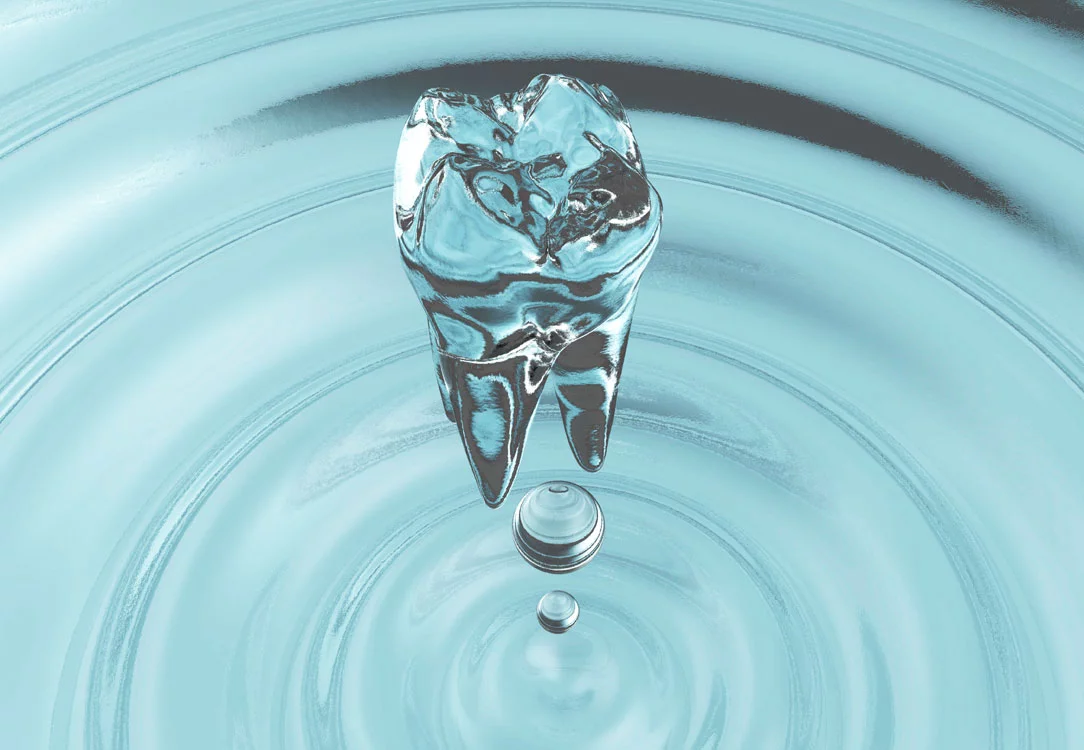Properly caring for your teeth involves daily tasks like brushing and flossing as well as occasional steps like going to routine dental checkups. One of the infrequent but important tasks you need to keep up with for proper oral care is fluoride treatment. Fluoride treatment can provide you with a number of benefits that can impact the long-term health of your teeth.
Why Should I Get Fluoride Treatment?
Fluoride treatment is a way to protect your teeth from the threat of tooth decay. Tooth decay happens as bacteria and enzymes dissolve away the protective enamel of your teeth. Once the bacteria move beyond the enamel, they can get into the tooth and cause decay. Daily oral care tasks like brushing and flossing can help prevent decay. Adding in professional fluoride treatment can create an extra layer of protection against decay.
You should get fluoride treatment as part of your comprehensive oral health care plan. The American Dental Association (ADA) recommends professional fluoride treatment at three-to-twelve-month intervals. Most people can get the fluoride treatments they need during their twice-yearly routine dental cleanings. If you need more frequent fluoride treatment because of issues with your teeth, your dentist may have you use dental trays designed for daily fluoride application or prescribe a fluoride rinse.
Who Can Benefit from Fluoride Treatment?
Children can receive their first fluoride treatment as soon as their first tooth erupts. Routine fluoride treatments can continue to be beneficial through childhood and adulthood. In the United States, tap water and some bottled water are treated with fluoride. This provides a small amount of fluoride as people go through day-to-day life. The level of fluoride in the water supply is not enough to get maximum benefits. Fluoride treatment at routine dental visits can maximize the benefits from fluoride to your overall oral health. Everyone with natural teeth can benefit from getting professional fluoride treatment at least twice per year.
What Is the Process of Fluoride Treatment?
- Can you eat after fluoride?
- How long after fluoride can I drink coffee?
- What not to eat after fluoride treatment?
- When can I brush my teeth after fluoride treatment?
| What You Can Eat/Drink | Wait Time | Notes |
|---|---|---|
| Water 💧 | 30 Minutes ⌛ | Sipping water is fine right away. |
| Soft Foods 🍲 | 30 minutes+ ⏳ | Stick to lukewarm, soft foods after fluoride varnish. |
| Hot Drinks ☕🔥 | 4-6 hours ⏳⏳ | Avoid hot coffee, tea, or soup to prevent fluoride removal. |
| Crunchy or Sticky Foods 🍎🍭 | 4-6 hours ⏳⏳ | Hard foods like chips and sticky candy can disrupt fluoride absorption. |
| Brushing Teeth 🦷 | At least 4-6 hours ⏳⏳ | Wait until the next morning if possible to maximize fluoride benefits. |
How Long After Fluoride Treatment Can I Eat?
Key Thing to Know: Wait 30 minutes, but in some cases, you may need to wait between 4 to 6 hours.
It is important to understand the rules related to eating after fluoride treatment. Once you finish with your routine dental appointment and fluoride treatment, you may ask, ‘How long after fluoride treatment can I eat?’ The general recommendation for eating after fluoride treatment is related to timing and not necessarily what you eat. You do not need to only ask ‘What can I eat after fluoride treatment?’, but also, ‘How long after fluoride can I eat?’ The minimum recommendation you will hear is to wait at least 30 minutes after fluoride treatment to eat. However, in some situations, you may be advised to wait between four and six hours to eat after fluoride treatment. The specific recommendation you receive will depend on the type of fluoride treatment and your unique situation.
How Long Should I Wait to Drink After Fluoride Treatment?
Key Thing to Know: Wait 30 minutes to drink lukewarm water. Wait longer for hot liquids that could stain your teeth.
Drinking lukewarm water is acceptable at the 30-minute mark after fluoride treatment. Many people ask, ‘How long after fluoride can I drink coffee?’ Hot liquids require a longer wait time after fluoride treatment. You want to give the topical fluoride treatment time to create the seal on your teeth before you introduce any drinks that can cause stains or get in the way of that process.

Why Should I Wait?
What Can I Eat and Drink?
- Hard-boiled eggs
- Potatoes
- Yogurt
- Bananas
- Applesauce
What Foods and Drinks to Avoid?
- Coffee
- Tea
- Citrus fruit
- Candy
- Soda
When Can I Brush My Teeth After Fluoride Treatment?
Key Thing to Know: Wait 4-6 hours or longer before brushing your teeth.
When brushing your teeth after fluoride treatment, you need to follow the same recommendations related to eating and drinking. You do not want to brush your teeth too soon because you may unintentionally scrub away the fluoride you just had applied to your teeth. Give the fluoride four to six hours before you brush to avoid scrubbing it off your teeth.
What to Do After Fluoride Treatment
There is no need to be confused about what to do after fluoride treatment. The information outlined above, along with the instructions from your dentist, includes everything you need to know about what to do after fluoride treatment. If you do not currently have a dentist who can provide you with fluoride treatment, you can find one by using the Find a Dentist tool provided by Smile Generation.
Find the Help You Need to Get Routine Dental Care and Fluoride Treatment
You can get fluoride treatment from a dentist who provides routine dental care services. General dentistry includes procedures such as cleanings, fluoride treatment, cavity prevention, cavity treatment, and more. The Find a Dentist tool from Smile Generation provides a way to search for the type of dentist you need in your area.
Smile Generation can also help you find general dental care for your children or a specialist for anyone in your family. If you need help finding a way to afford fluoride treatment and general dental care, Smile Generation can help you find a dental plan or financing options. Smile Generation Financial provides financing options that you can use to fill the gaps in your dental plan and pay for your oral care. The Smile Generation Dental Plan $0 preventative dental care, and reduced costs on a long list of other oral health procedures.
Find your trusted, local dentist today!
Sources
Smile Generation blog articles are reviewed by a licensed dental professional before publishing. However, we present this information for educational purposes only with the intent to promote readers’ understanding of oral health and oral healthcare treatment options and technology. We do not intend for our blog content to substitute for professional dental care and clinical advice, diagnosis, or treatment planning provided by a licensed dental professional. Smile Generation always recommends seeking the advice of a dentist, physician, or other licensed healthcare professional for a dental or medical condition or treatment.









